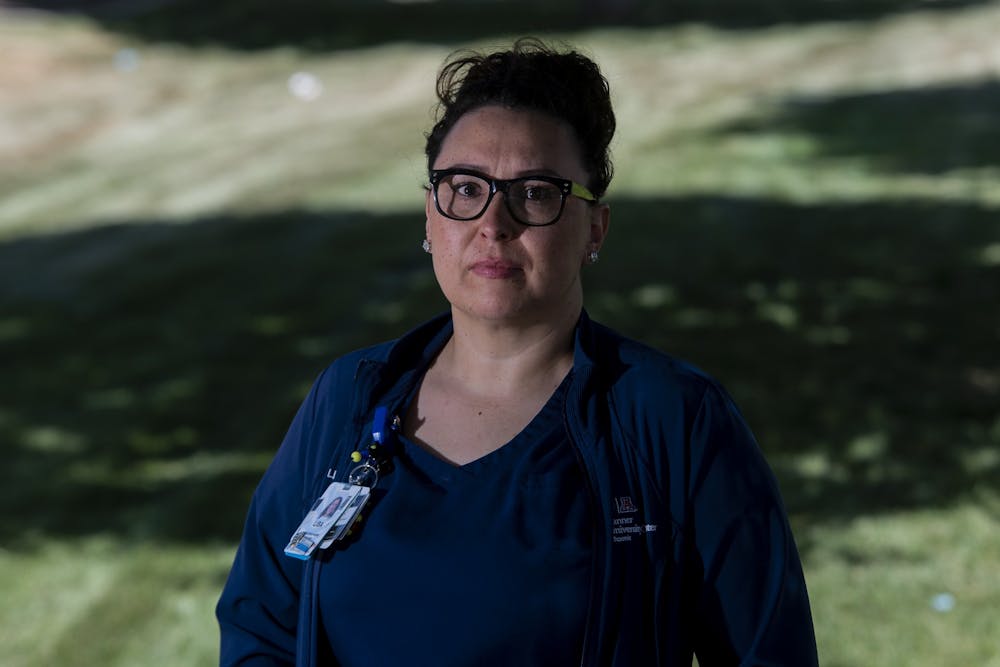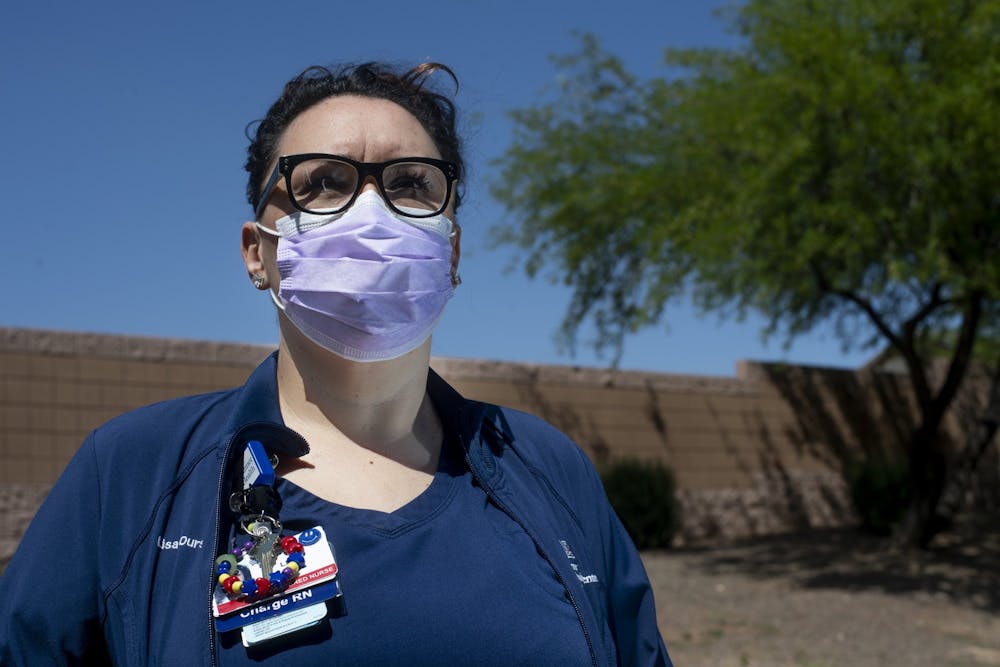She gets up before sunrise. Usually, she gets dressed in her room, but lately, she’s had to shuffle barefoot down the hall to pull navy blue scrubs out of the dryer because she washes them every night when she gets home.
My mom works as a nurse during a global pandemic.
We leave a laundry basket, Clorox wipes and a bathrobe in the garage when she’s away at work so she can drop her scrubs in her laundry basket, put on the bathrobe and use the wipes to disinfect everything from her keys and phone to her work shoes.
She bids me and my stepfather a rushed "hello" as she rushes her way past us, so that she can shower before she can even hug us. After a full day of caring for and tending to complete strangers, she’s still protecting her family.
While most of us — at least, those who are doing our due diligence — are stuck at home complaining about social distancing and self-quarantining, my mother drives head-on into the one place where she likely has the highest chance of being infected with COVID-19.
Not to mislead you — she doesn’t work directly with infected patients. She works on the floor where she’s always worked, where she cares for patients who are in pre and post-surgical care.
Yes, there are still patients in hospitals that haven’t been infected with coronavirus. And yes, they still need to be taken care of by nurses, doctors and surgeons. Though my mom isn’t working to directly fight this pandemic, she is supporting those who are. Without people like her, who are sticking it out and continuing to put themselves at risk of catching the virus, there wouldn’t be enough registered nurses to take care of all the new COVID-19 patients.
At the time of my writing this, Arizona has 5,251 confirmed cases.
“But my floor is pretty empty,” my mom said. Banner has discontinued all elective surgeries, which has greatly reduced the number of patients she sees. “We’ve stopped allowing visitors, too.”
She said this has been heartbreaking to see at times. These are patients in hospitals in the midst of a global pandemic, who are having their bodies opened up and operated on, and who are completely alone.
My mother keeps them company. She gives them their medications, changes their wound dressings, cleans their bedpans, carries them to the restroom and checks their vitals. She’s there. When nobody else is able to be, my mom is there.
She fights through 12-hour shifts, never really seeing the light of the day except through the windows of her patients’ rooms.
She does not see herself as a hero. She does what she does because that’s the person my mom is, that’s the way she was built.
She had been working toward her nursing degree since before I was born, dropping in and out of school for just about as long as I can remember. In 2014, she finally graduated nursing school. And in 2015, she started her first job as a nurse.
For over 20 years, she worked and strived toward this job that she and everyone around her knew she was made to do. And even with a virus that has effectively shut down most of the U.S., she continues to do it.
Not because she’ll be perceived as a hero, not for the attention or the praise. She does it out of the kindness of her heart. She does it because she has so much compassion that she feels the need to be there for the people, scared and sick, who have nobody else.
And she’s not alone. There are millions of nurses and healthcare workers who are looking this pandemic in the face and continuing to care for the people who need it.
They’re afraid and they’re exhausted, but they show up. Stay home for them.
Reach the reporter at japere38@asu.edu or follow @jsphprzz on Twitter.
Like The State Press on Facebook and follow @statepress on Twitter.





